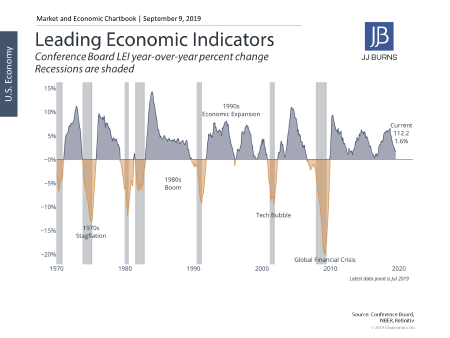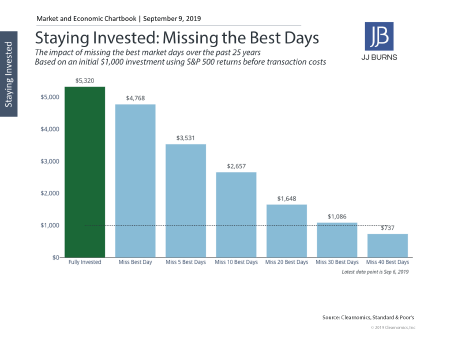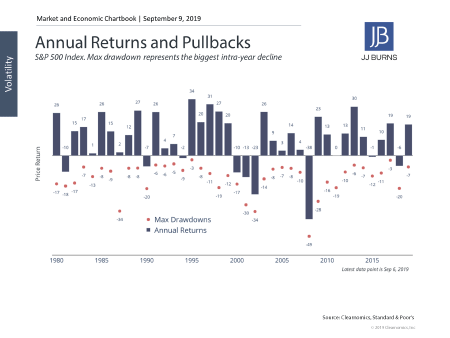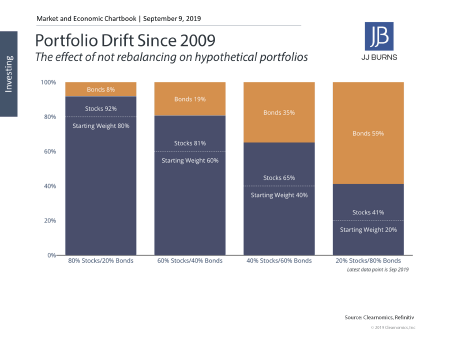We hear the noise. All the chatter from the doom and gloom media, predicting a coming recession. And naturally, investors become a little rattled and wonder if they should be making any moves now, ahead of a potential market pullback.
Well, we’re here to clarify a few things about what’s really happening in the economy now, and to offer our advice on how an experienced investor should react accordingly.
Let’s Review the Facts About a Recession
A recession is a macro-economic term that refers to a significant decline in general economic activity in a designated region. It is typically confirmed after two consecutive quarters of economic decline, as reflected by GDP numbers, in conjunction with other monthly indicators like employment.
Recessions are frequently characterized by a rash of business failures and often bank failures, slow or negative growth in production, and elevated unemployment.
NONE of those conditions exist in our present economy!
Currently, the U.S. Leading Economic Indicators Index is still positive. Inflation is low, unemployment is low, and jobless claims are not excessively high or rising rapidly.

In our region, we are amazed at the number of help wanted signs posted in local businesses that most likely are not included in official statistics.
Furthermore, recessions are notoriously difficult to predict. So-called pundits in the media often rely on indicators that have long lead times; some up to a TWO YEAR lead.
If nervous investors decide to leave the market based on those kinds of nebulous indicators and predictions, that’s a long time to be out of what could be a potentially profitable market. Especially based on something that might not even occur! Plus, missing out on positive days in the market can have a serious effect on long-term capital growth. Take a close look at the graph below:

To sum up, we are not currently in a recession and there are no leading economic indicators that suggest that one is lurking around the corner.
“The Headlines Say Things are Bad. Why Am I Still in the Market?”
Markets are ALWAYS turbulent. Markets often have daily volatility but it is generally manageable. The market has a reaction, digests the information and moves on.

There is never a perfect time to invest. Many investors believe they can flawlessly time their deployment of capital at the very bottom of a severe bear market. Two issues pertaining to that strategy are:
- Nobody—NOBODY—knows when the bottom of a bear market occurs.
- Investors let the fear instinct take over during a decline, preferring to sell stocks rather than buy them. Remember, the adage is “Buy low, sell high,” not the other way around.
Negative headlines play to EMOTIONS. We often make reference to the “Four Horsemen of the Investing Apocalypse,” which are:
- FEAR
- GREED
- HOPE
- IGNORANCE
None of these emotional or mental states involve any kind of rational assessment of prevailing market or economic conditions. Investors who fall prey to The Horsemen are allowing other market participants to make decisions for them about their own finances and portfolios.
The financial media is not an advisor, and is not interested in helping investors. The media is interested in promoting fear and confusion—unleashing The Four Horsemen—and having folks tune in to watch commercials for financial products that claim to help.
There is NO one-size-fits-all portfolio or plan. We customize every plan and portfolio, and we thoroughly know our clients, so that we can effectively make changes to either as necessary.
A talking head on TV doesn’t and can’t.
“If a Recession Occurs, How Will My Portfolio Be Handled?”
Good question. We get asked this all the time. But let’s note a few things before we specifically answer the question.
First, timing the market is almost impossible. But for those who try, there are costs attached. And attempting to time the market could hurt you more than you think.
During what are perceived to be volatile times in the market, investors always focus on the fear instinct to sell, but never focus on the greed instinct of when to re-enter the market. As a result, investors can be their own worst enemy—selling at times of greatest panic, and then potentially missing out on subsequent gains.
The capacity to stay the course, to remain in the market over the long haul, and to take advantage of buying opportunities during a down cycle, is an essential KEY to capital accumulation and meeting long-term plans and goals.
It’s impractical to try to maneuver through market turbulence, trying to guess about short-term events and still maintain a long-term perspective. Portfolios and asset allocations can always be changed to reflect life’s circumstances.
However, constantly trying to time the market makes setting an allocation and sticking with it much more difficult, due to the many factors that influence a plan and a portfolio.
So how will we handle your portfolio? First, here’s what we won’t do. We won’t time your portfolio out of stocks into cash, and then put it back into stocks. This is impossible to do successfully, and many of our clients have long-term goals and financial plans that will not be met with market-guessing trading.
Here’s what we will do. In conjunction with your goals and financial plan, we will establish a long-term investment portfolio and set your asset allocation accordingly.
From time to time, we may adjust the allocation based on your individual circumstances, but it will be a strategic change to your mix of bonds, stocks and cash. We will not try to time trades among asset classes.
Regardless of your ultimate allocation, we will periodically rebalance your portfolio to make sure your asset mix is aligned with your goals. For example, this may entail selling bonds to buy equities, if the stock market suffers a decline during a protracted period such as 2008-09, or like the tech stock sell-off during the early 2000s.

If cash is a requirement for you in the near-term future, we recommend assessing the amount of cash you’ll need and then setting aside the funds from your current allocation. Raising cash during a pullback is not the best solution to meet cash needs.
Let’s Have a Sunny Day Discussion
At JJ Burns & Company, we always recommend to our clients to have a “Sunny Day” discussion with us about economic issues, well before the markets get bumpy and fear kicks in.
It’s the optimal time to examine your personal, long-range goals and plans, and to discuss how your portfolio is designed to achieve them. It’s much better to have a calm and sensible discussion then, as opposed to when the market appears to be in turmoil.
We are long-term optimists about capitalism and markets. We think if an investor is too, then there’s never a truly bad time to be in the market.
investing recession stock market




